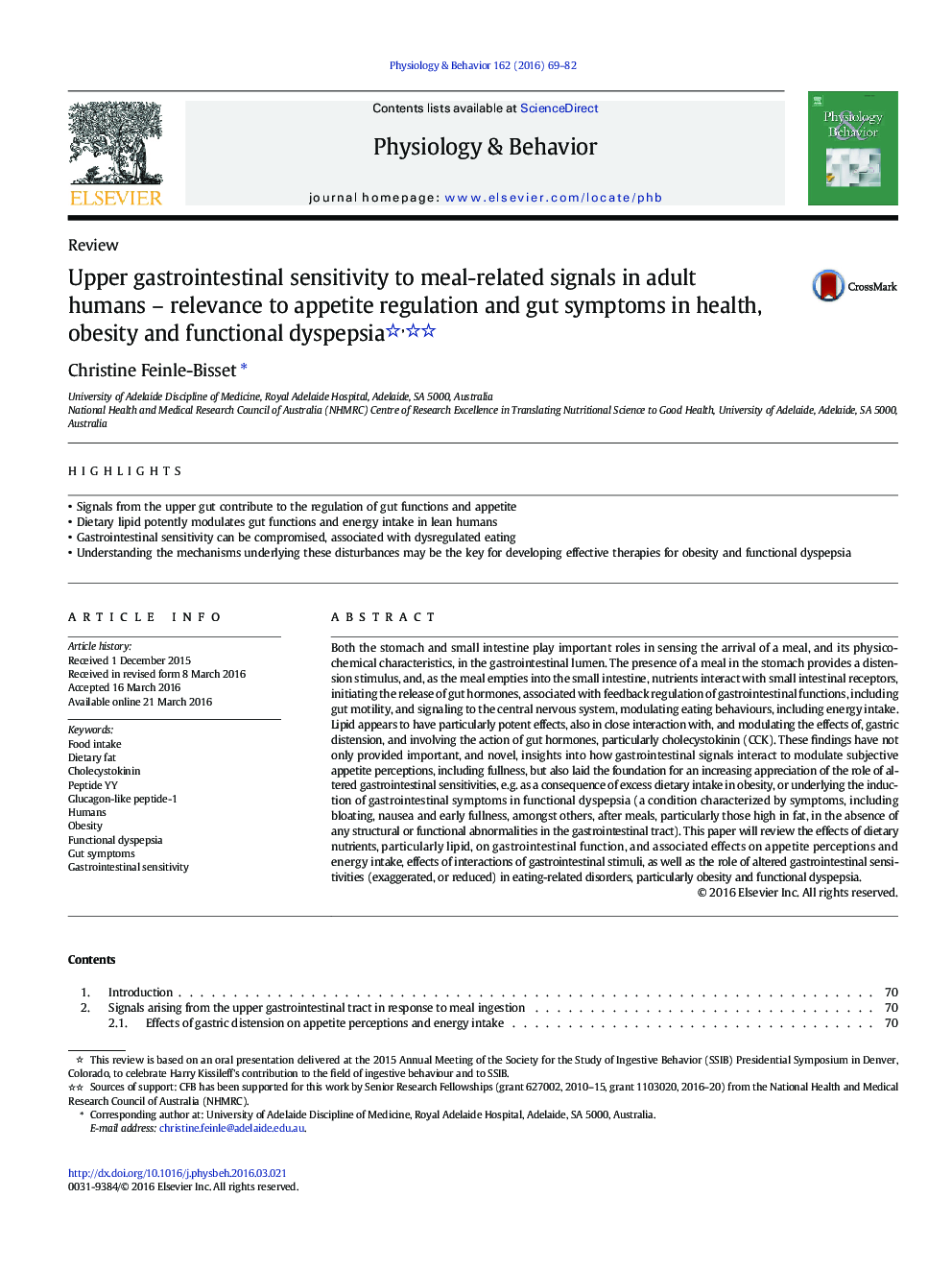| کد مقاله | کد نشریه | سال انتشار | مقاله انگلیسی | نسخه تمام متن |
|---|---|---|---|---|
| 2843902 | 1571156 | 2016 | 14 صفحه PDF | دانلود رایگان |

• Signals from the upper gut contribute to the regulation of gut functions and appetite
• Dietary lipid potently modulates gut functions and energy intake in lean humans
• Gastrointestinal sensitivity can be compromised, associated with dysregulated eating
• Understanding the mechanisms underlying these disturbances may be the key for developing effective therapies for obesity and functional dyspepsia
Both the stomach and small intestine play important roles in sensing the arrival of a meal, and its physico-chemical characteristics, in the gastrointestinal lumen. The presence of a meal in the stomach provides a distension stimulus, and, as the meal empties into the small intestine, nutrients interact with small intestinal receptors, initiating the release of gut hormones, associated with feedback regulation of gastrointestinal functions, including gut motility, and signaling to the central nervous system, modulating eating behaviours, including energy intake. Lipid appears to have particularly potent effects, also in close interaction with, and modulating the effects of, gastric distension, and involving the action of gut hormones, particularly cholecystokinin (CCK). These findings have not only provided important, and novel, insights into how gastrointestinal signals interact to modulate subjective appetite perceptions, including fullness, but also laid the foundation for an increasing appreciation of the role of altered gastrointestinal sensitivities, e.g. as a consequence of excess dietary intake in obesity, or underlying the induction of gastrointestinal symptoms in functional dyspepsia (a condition characterized by symptoms, including bloating, nausea and early fullness, amongst others, after meals, particularly those high in fat, in the absence of any structural or functional abnormalities in the gastrointestinal tract). This paper will review the effects of dietary nutrients, particularly lipid, on gastrointestinal function, and associated effects on appetite perceptions and energy intake, effects of interactions of gastrointestinal stimuli, as well as the role of altered gastrointestinal sensitivities (exaggerated, or reduced) in eating-related disorders, particularly obesity and functional dyspepsia.
Journal: Physiology & Behavior - Volume 162, 1 August 2016, Pages 69–82